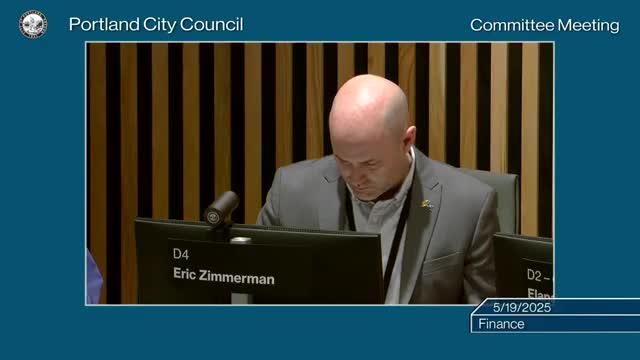Article not found
This article is no longer available. But don't worry—we've gathered other articles that discuss the same topic.
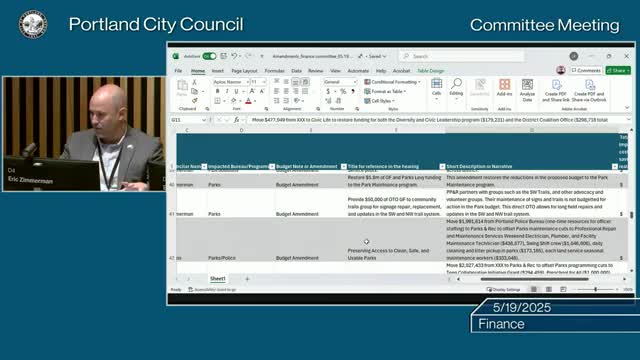
Zimmerman amendment targets urban forestry reorganization; committee raises concerns about scope and timing
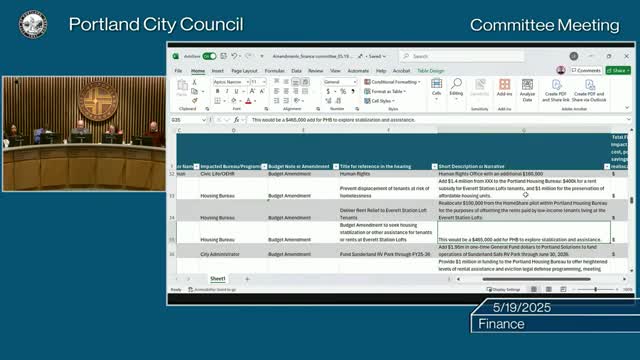
Committee examines Civic Life admin cuts and related restores for neighborhood grants and immigrant/refugee services
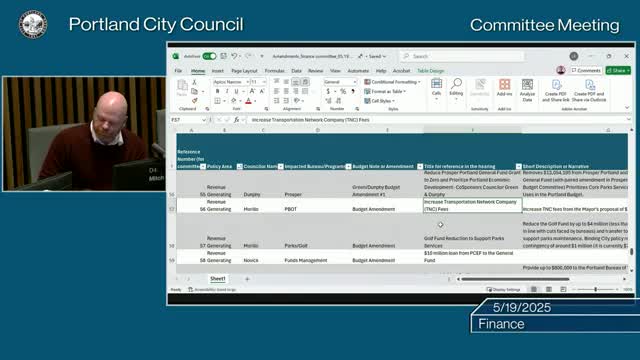
Councilors weigh Transport Network Company fee increase as potential PBOT revenue source
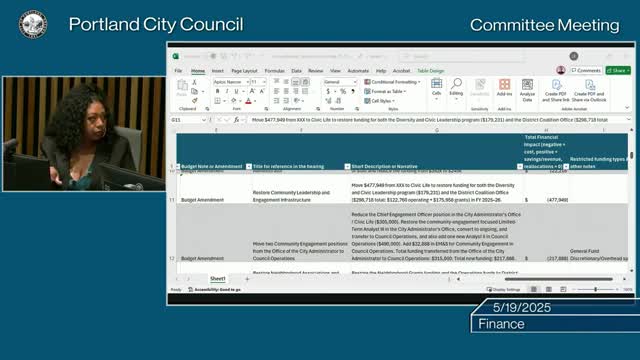
Councilors debate parks maintenance cuts, levy trade-offs and a proposed revenue-backed loan
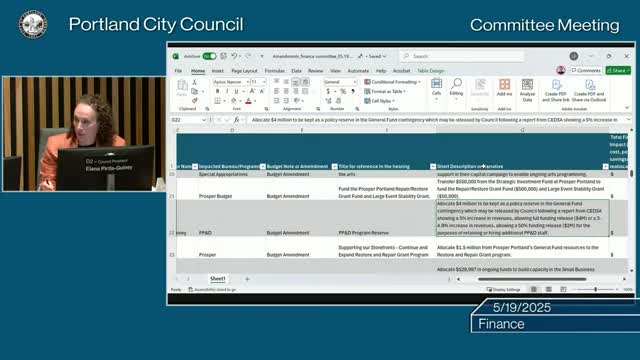
Committee debates short-term draw and policy reserve to avoid PP&D layoffs affecting permitting
